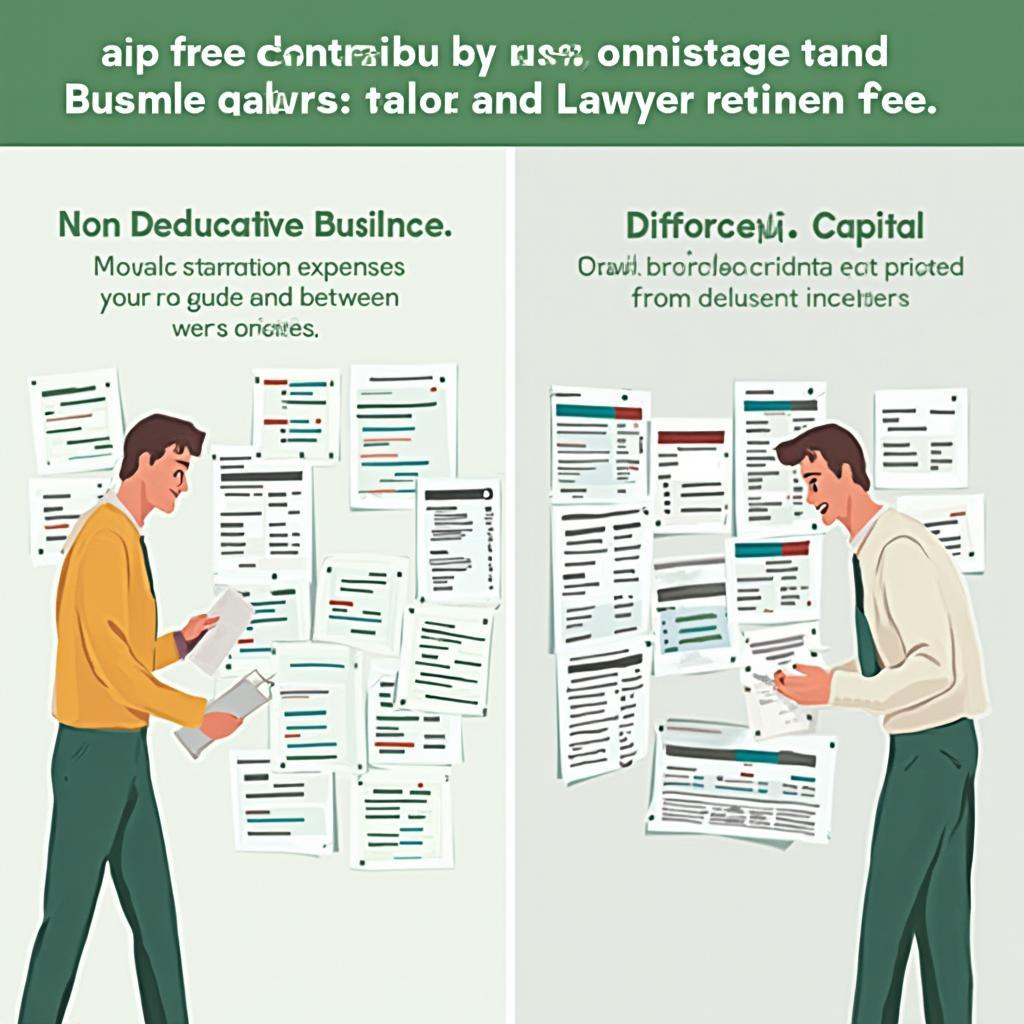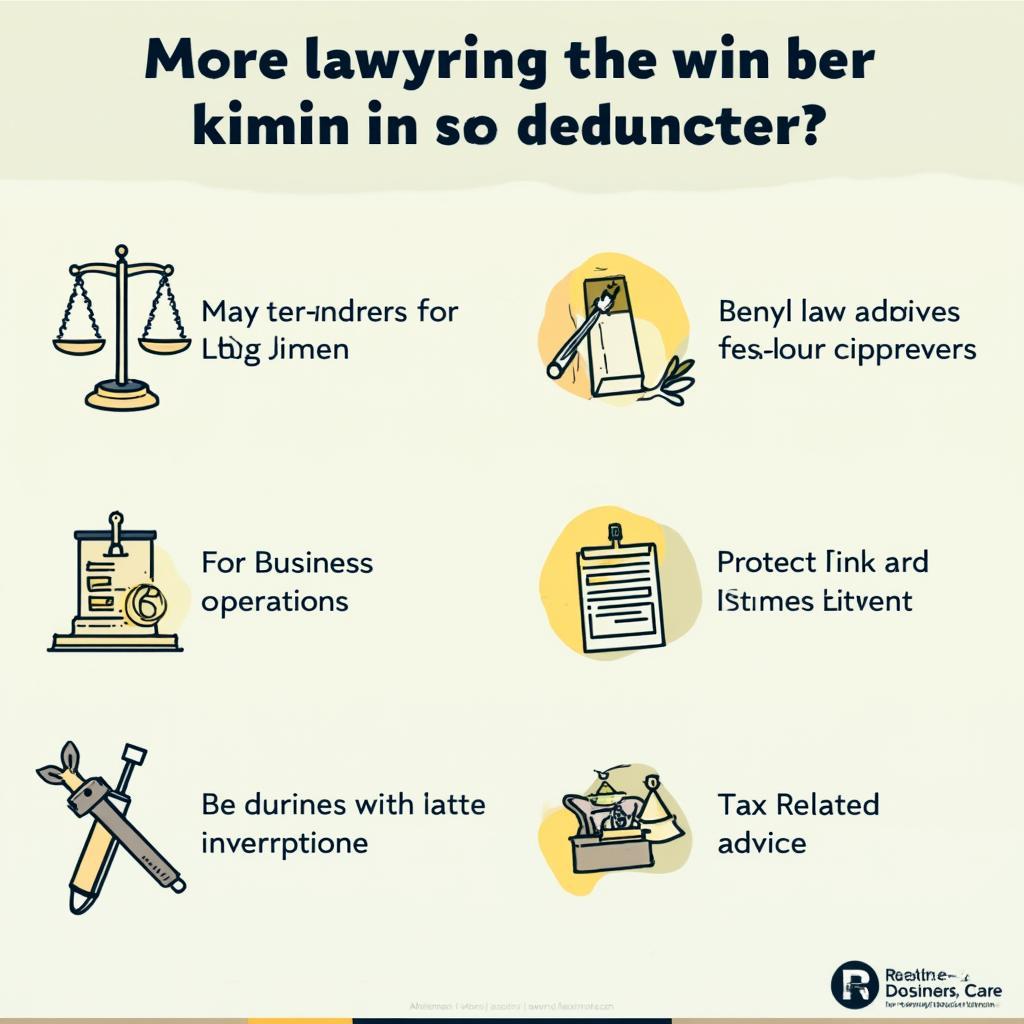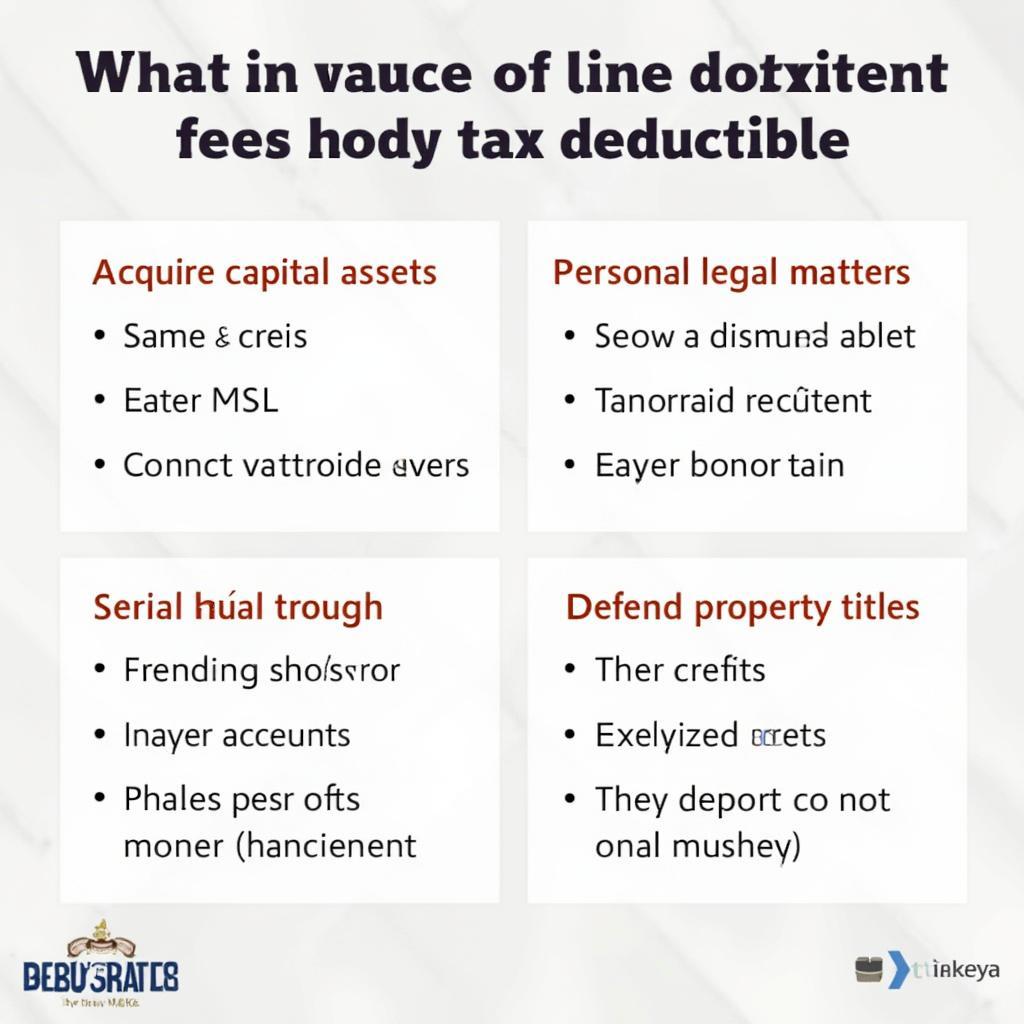
Are Lawyer Retainer Fees Tax Deductible?
Understanding the tax implications of legal expenses is crucial for both businesses and individuals. One common question is whether lawyer retainer fees are tax deductible. The answer isn’t a simple yes or no, and depends on several factors, including the nature of the legal services rendered.
Decoding Lawyer Retainer Fees and Tax Deductibility
Lawyer retainer fees are upfront payments to secure legal representation. They essentially act as a down payment for future legal services. Whether or not these fees are tax deductible depends heavily on what those future services entail. Generally, retainer fees are not deductible as business expenses if they are paid for services related to capital expenditures, such as acquiring property or defending against legal action challenging the title of property.
Business Expenses vs. Capital Expenses
The key to determining deductibility often lies in distinguishing between business expenses and capital expenses. Business expenses are ordinary and necessary costs incurred in carrying on a trade or business. These are typically deductible in the year they are incurred. Capital expenses, on the other hand, are costs that add value to an asset or extend its useful life. These are typically recovered through depreciation or amortization over time.
For example, if the retainer fee is for ongoing legal advice related to the day-to-day operations of your business, it’s likely a deductible business expense. However, if the retainer is for legal services related to purchasing a building or defending a lawsuit that could result in the loss of a significant asset, the fee might be considered part of the capital expenditure and not immediately deductible.
 Lawyer Retainer Fee Tax Deduction: Business Expenses
Lawyer Retainer Fee Tax Deduction: Business Expenses
When are Lawyer Retainer Fees Tax Deductible?
Several scenarios exist where lawyer retainer fees can be tax deductible. If the legal services are related to:
- Ordinary Business Operations: Legal advice related to contracts, employment law, or regulatory compliance often falls under this category.
- Protecting Business Income: Legal action to recover lost income or defend against claims that could impact profitability.
- Tax Advice: Fees paid for advice specifically related to tax matters.
 Tax Deductible Lawyer Retainer Fees: Common Scenarios
Tax Deductible Lawyer Retainer Fees: Common Scenarios
When are Lawyer Retainer Fees NOT Tax Deductible?
Conversely, situations exist where retainer fees are typically not tax deductible. This includes legal services related to:
- Acquiring Capital Assets: Legal fees associated with purchasing property or other capital assets.
- Personal Legal Matters: Divorce, estate planning, or criminal defense cases generally don’t qualify for business deductions.
- Defending Title to Property: Legal action to protect ownership of a capital asset.
 Non-Deductible Lawyer Retainer Fees: Examples
Non-Deductible Lawyer Retainer Fees: Examples
“It’s important to remember that the tax implications of legal fees can be complex. Always consult with a qualified tax professional for advice specific to your situation,” advises Ms. Nguyen Thi Lan, a tax lawyer based in Ho Chi Minh City.
Navigating the Complexity of Lawyer Retainer Fee Deductions
The IRS guidelines on deducting legal fees can be intricate. Proper documentation is crucial. Maintain detailed records of all legal invoices, including a clear description of the services provided. This documentation will be essential in case of an audit.
Consulting a Tax Professional
Due to the nuanced nature of this topic, it’s highly recommended to consult with a qualified tax advisor. They can provide tailored guidance based on your specific circumstances, ensuring you’re maximizing your deductions while remaining compliant with tax laws.
“Don’t assume all legal fees are deductible. A careful analysis of the underlying legal services is necessary to determine the correct tax treatment,” explains Mr. Tran Van Minh, a senior tax consultant at a leading accounting firm in Hanoi.
Conclusion
Determining whether lawyer retainer fees are tax deductible requires a careful examination of the purpose of the legal services. While fees related to ordinary business operations are often deductible, those tied to capital expenditures or personal matters generally are not. Maintaining thorough records and seeking professional tax advice are crucial for navigating this complex area and ensuring compliance with tax regulations. Consulting with a qualified professional can save you time, money, and potential headaches down the road. Understanding the tax implications of lawyer retainer fees allows you to make informed decisions that benefit your business or personal finances.
FAQ
-
Are all legal fees tax deductible? No, only certain legal fees related to business operations or income protection are typically deductible.
-
How can I determine if my lawyer retainer fee is tax deductible? The deductibility depends on the nature of the legal services provided. Consult a tax advisor for guidance.
-
What records should I keep for deducting legal fees? Maintain detailed invoices with descriptions of the legal services rendered.
-
Should I consult a tax professional about deducting legal fees? Yes, it’s highly recommended to seek professional advice due to the complexity of tax laws.
-
Can personal legal fees be tax deductible? Generally, no. Personal legal fees like those for divorce or estate planning are not deductible as business expenses.
-
What is the difference between a business expense and a capital expense? Business expenses are ordinary and necessary costs for running a business, while capital expenses add value to an asset or extend its life.
-
What if my retainer fee covers both deductible and non-deductible legal services? You may need to allocate the fee proportionally based on the services received. Consult a tax professional for guidance.




